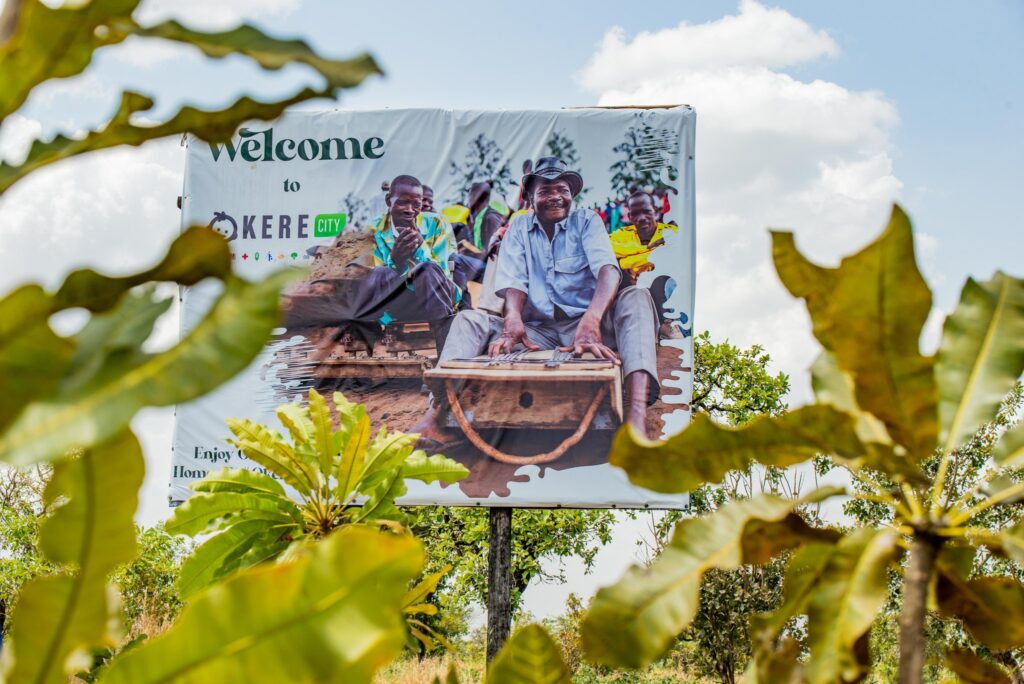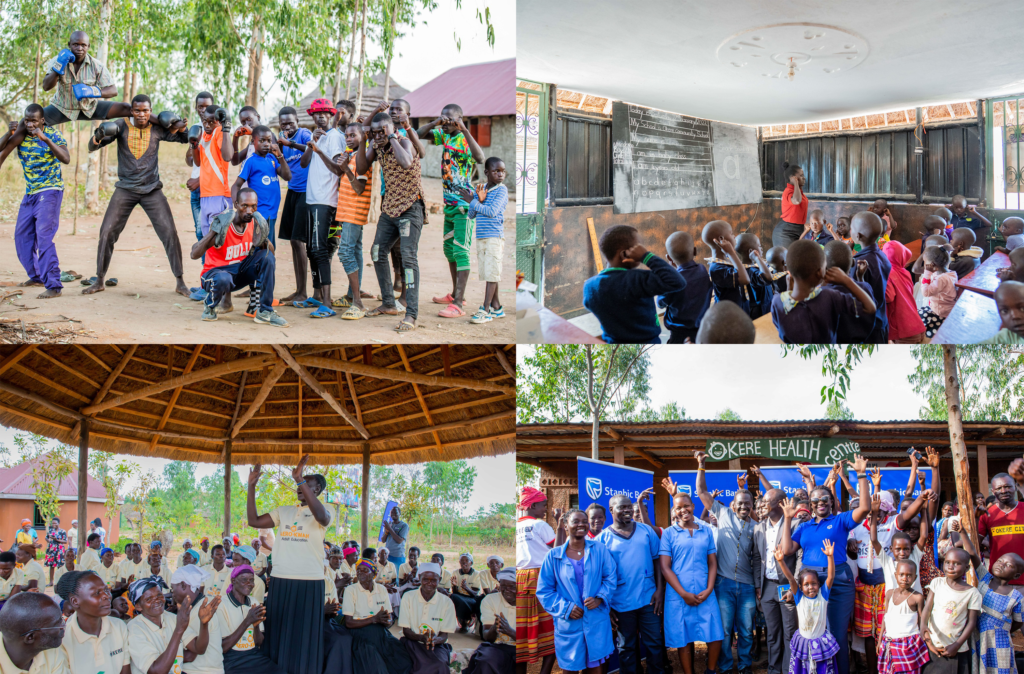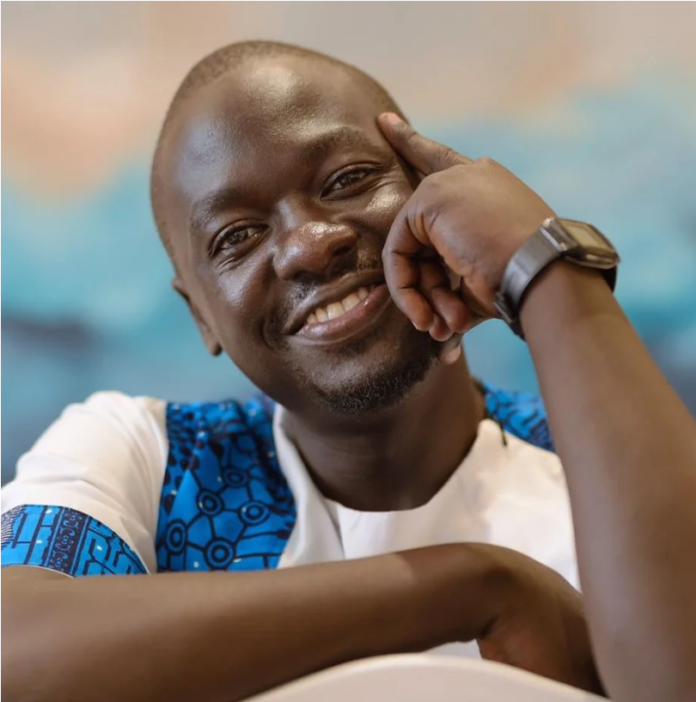What started as what he terms his ‘selfish’ search for identity has led to the transformation of a remote war-torn village in Northern Uganda, into Africa’s first radical sustainable city.
“People go to cities to look out for opportunities because they are hubs of economic activities and social amenities. So if these services can be found in Kampala, New York or London, why can’t we create them here in Okere?” Ojok Okello, founder of Okere City Project
Sub-Saharan Africa has been plagued by various instabilities, with 21.8 million people reported to have been uprooted from their homes, leaving ghost villages and towns in their wake. From Ethiopia, Libya, DRC, Somalia, and South Sudan, to Uganda, the number of people forced to flee violence, war and persecution, is outpacing available solutions like relocation, resettlement and return, according to the UNHCR.
However, young people are not sitting back. Ojok is one of the youths taking charge in determining the fate of these communities, building them back bigger and better.
Born at the height of the NRA civil war in northern Uganda, Ojok’s mother was forced to flee their home with the then 6 months old toddler following a raid by the rebels in which his father was killed.
The duo sought refuge in a small town in Lira District and later in the slums of Kampala, where he would grow up and attain education.
However, a few years ago, Ojok grew restless; he was plagued by questions about his family and identity.
“I grew up not knowing where my father is, where he was buried, what kind of family he came from. I am an African man, and an African man will always want to know where they belong.”
In search of answers, he embarked on a journey that took him back to where it began.
Located in Northern Uganda and 420km from Uganda’s capital Kampala, Okere is a very small, remote and isolated village in Otuke District.
Upon arrival, Ojok was met with vast bushes and the devastating shell of what used to be home.
“There was nothing left of home. I couldn’t fathom living here, in sheer lack, and absolute scarcity of anything that could make life better.”
Armed with steely determination, he resolved to build back his home. But was soon struck by a deeper question; what happens to the hundreds of others looking to reclaim that same identity, the lost glory of what their community once was?
This fundamentally layered question led to the birth of the Okere City Project in 2019. Dubbed Africa’s first sustainable city, the Okere City project sits on a family estate of about 200 hectares of land, with its growth premised on three pillars; community, togetherness and harnessing their naturally available resource; the shea tree.

Ojok says he got the inspiration to turn to the shea tree while taking an afternoon nap in his compound under the tree, during the first Covid19 lockdown. At the time, he was frustrated the project was not being helpful to the local community members.
“I looked at the tree and asked myself, why aren’t we harnessing the resources in-built within this tree to make our communities better.”
The shea tree has since become the city’s mainstay with several locals earning their livelihoods from trading in shea butter products.
Complete with a school, health centre, market, village bank, and sports and recreational facilities serving a total of 5,000 of the populace, Okere city has developed into a social and economic hub powered by electricity generated from solar energy.
To ensure the sustainability of the project, Ojok says they have been intentional about not relying on charity but rather on the power of community.
“We bring our resources together. We see what is in my basket as the founder of the project, and what is in the pocket of the local community members and together, we make sure we run our activities.”
However, it’s not all been a rosy journey. In his quest to build Okere city, Ojok says he has encountered several bottlenecks that include non-cooperative community members due to exploitation by previous development projects, as well as the multiplicity of projects implemented concurrently.
“This becomes so problematic especially if you do not have the resources to hire the rightful experts to make sure that these projects are implemented but on a good note, we bring in community members who are our resource persons and their active involvement in our projects is the asset upon which our project is based and built.”

From draining his savings to quitting his well-paying public service job and relocating his family to the remote, little-known village, Ojok says he is proud to see his sacrifices pay off and his dream for Okere becoming reality.
“What keeps me moving is the quote by Martin Luther King that “life’s most urgent and persistent question is what are you doing to others.”
Looking ahead, Ojok says he would love to see the project model replicated in different parts of the continent.
“I think that one core thing that should be picked from what we do is involving the local community members and the bottom–up development approach. Also, it’s almost impossible to find a geographical spot within the African continent without useful and meaningful resources. The fundamental question is how do we as African people in partnership with the rest of the world harness these resources for the greater good?”
As several post-conflict cities undergo reconstruction, Ojok advises development agencies to understand the local context and prioritize sustainability.
“I think that international development should consider this question; is sustainability in-built within the projects that we hope to implement? Because if a project is not sustainable, we’ll have to rely on the next donor, and next charity, that would be a waste of time.”
Check out this documentary by CNN on Ojok and Okere City:
